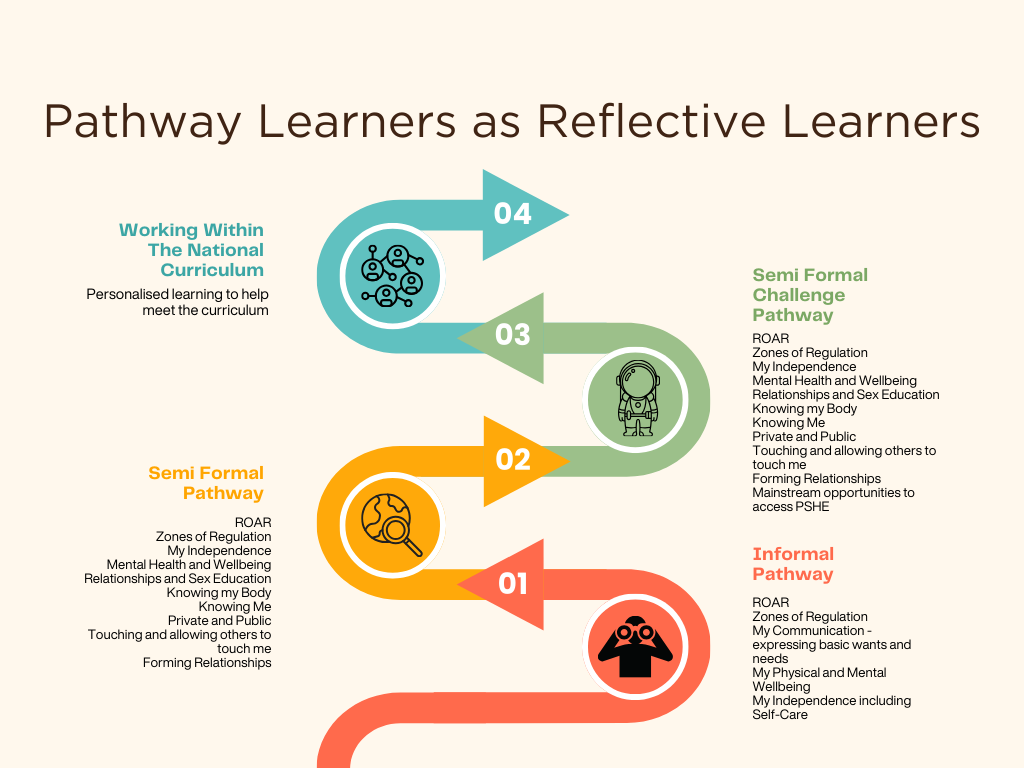Personal, social, health and economic (PSHE) education at Belmont
Intent
Personal, Social, Health Education (PSHE), including Relationships and Sex Education (RSE), lies at the heart of our school values and ethos. We are deeply committed to the well-being of our pupils, and this focus is embedded in everything we do.
Our curriculum aims to empower children to become healthy, safe, independent, and responsible members of society who demonstrate respect, tolerance, and understanding towards others. We strive to equip our pupils with the knowledge and skills to navigate the challenges and opportunities of an ever-changing, diverse modern Britain, both offline and online. This is underpinned by the school’s ethos and its commitment to the UNCRC Rights Respecting principles, with a strong emphasis on pupils’ physical, emotional, and mental well-being at all times.
Implementation
At Belmont School, we use the Jigsaw PSHE curriculum to guide and structure our teaching of PSHE and RSE. The Jigsaw curriculum is a comprehensive, spiral approach that is designed to promote positive mental health, resilience, and well-being, providing a whole-school framework for teaching PSHE across all primary year groups.
The curriculum is structured around six core units of work, each focused on a different theme, and delivered over the course of the academic year. These units are:
-
Being Me in My World
-
Celebrating Difference
-
Dreams and Goals
-
Healthy Me
-
Relationships
-
Changing Me (including RSE)
Each theme is linked to one of the three core areas of the Health Education Partnership PSHE and Wellbeing Framework: Health and Wellbeing, Relationships, and Living in the Wider World.
In addition to these six core themes, the Jigsaw curriculum incorporates an emphasis on developing skills such as resilience, a growth mindset, communication, and problem-solving. Pupils explore these themes through a range of activities, including drama, discussions, and reflection journals, which enable them to process their learning in a way that is both meaningful and engaging.
Lessons may be delivered daily or in weekly one-hour blocks, allowing for flexibility in response to the needs of each class. The learning is personalised, with topics tailored to meet the individual needs of students, ensuring the curriculum is relevant and sensitive to the issues that may arise within each cohort. Throughout, the language of the UNCRC Rights Respecting principles is integrated, helping pupils to understand their rights and responsibilities in the context of PSHE.
Impact
The Jigsaw curriculum ensures that pupils progress through each stage of their learning, from their individual starting points, acquiring the knowledge, skills, and values necessary to thrive as confident, respectful individuals in modern society.
By the end of their education at Belmont School, pupils will have developed the ability to:
-
Show respect for themselves, others, and the world around them.
-
Recognise and apply British Values, including democracy, the rule of law, individual liberty, and mutual respect.
-
Understand and embrace diversity, demonstrating tolerance and appreciation for differences.
-
Identify and manage emotions, with the confidence to seek support when needed for their mental health.
-
Develop the skills to keep themselves safe, both physically and online, recognising risks and knowing how to protect themselves.
-
Build and maintain healthy relationships with peers and adults, including the ability to resolve conflict and communicate effectively.
-
Make informed choices to support a healthy lifestyle, including emotional well-being, physical health, and safe online behavior.
-
Understand the physical, emotional, and social aspects of Relationships Education at an appropriate level for their stage of development.
-
Develop self-confidence and self-esteem, with the ability to set personal goals and aspire to reach their potential.
-
Plan for the future, setting realistic aspirations and understanding the steps required to achieve them.
The Jigsaw PSHE curriculum provides a solid foundation for pupils to grow as well-rounded, confident individuals with the emotional literacy and resilience to thrive in today’s complex world.

